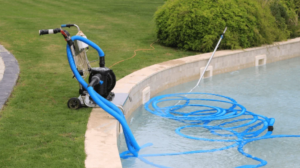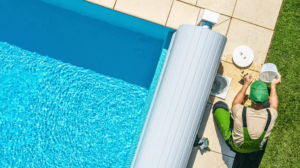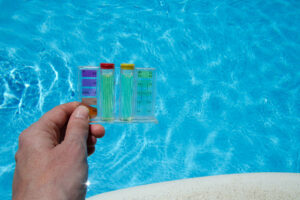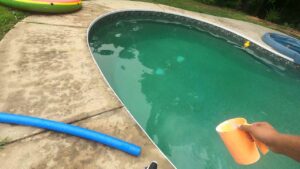Did you know that a single unnoticed crack in your pool could lead to thousands of dollars in repairs? For homeowners in Pennsylvania, where summers are short and pool time is precious, keeping your backyard oasis in top shape is a must. That’s where regular pool inspections come in—they’re your first line of defense against costly surprises and safety hazards. In this article, you’ll discover why these checkups matter, how they save you money, and what you can do to keep your pool sparkling all season long with help from our team at Poseidon’s Custom Pools.
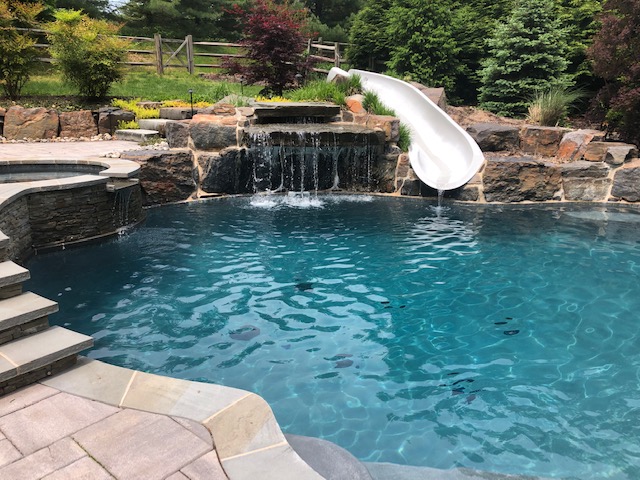
Why Regular Pool Inspections Are a Game-Changer
Your pool isn’t just a place to cool off—it’s an investment. Whether you built it with us or inherited it with your home, safeguarding your pool investment starts with routine inspections. Think of it like taking your car for an oil change: skip it, and you’re asking for trouble down the road.
Regular pool inspections catch small issues before they spiral into big ones. A tiny leak might not seem like much today, but left unchecked, it could waste water, damage your yard, or even crack your pool’s foundation. According to the Pool & Hot Tub Alliance, proactive maintenance aligned with industry maintenance standards can cut repair costs by up to 30%. That’s money you could spend on a new floatie instead of a plumber.
Plus, there’s the safety factor. A damaged pool deck or faulty pump isn’t just inconvenient—it’s a risk to you, your family, and your guests. Inspections help spot hidden pool risks, ensuring everything’s up to code so you can splash around worry-free.
What Happens During a Pool Inspection?
So, what exactly are the pros looking for when they inspect your pool? It’s more than a quick glance. Here’s a rundown of what a thorough checkup—like our inspection services—covers:
- Structural Integrity: Cracks, leaks, or shifting tiles that could weaken your pool over time.
- Equipment Check: Pumps, filters, and heaters—making sure they’re running smoothly and efficiently.
- Water Quality: Testing pH, chlorine levels, and clarity to keep your pool safe and swim-ready.
- Safety Features: Inspecting ladders, diving boards, and railings for wear and tear.
- Deck and Surroundings: Spotting tripping hazards or drainage issues around the pool area.
We’ve seen it all—from sneaky leaks hiding under decks to filters clogged beyond recognition. A good inspection doesn’t just spot problems; it keeps your pool in peak condition for those hot Pennsylvania summers.
How Often Should You Schedule Pool Inspections?
You might be wondering, “How often do I really need this?” The answer depends on your pool and how much you use it, but here’s a general guide:
- Before Opening: Get a pro to check everything in spring, especially after Pennsylvania’s harsh winters.
- Mid-Season: A quick once-over in July ensures summer fun doesn’t get interrupted.
- Before Closing: Prep your pool for winter to avoid freeze damage.
For heavy users—say, you’ve got kids who treat the pool like their personal playground—consider monthly checks during swim season. It’s overkill for some, but it beats fishing out a broken skimmer in the middle of a heatwave. Curious about how weather ties into pool care? Check out more on the process of building a custom pool in Pennsylvania.
Here’s a handy table to break it down:
| Season | Inspection Frequency | Why It Matters |
| Spring (Opening) | Once | Catch winter damage early |
| Summer | Monthly or Mid-Season | Keep equipment humming |
| Fall (Closing) | Once | Prevent costly repairs next year |
The Cost of Skipping Regular Pool Inspections
Let’s talk dollars and cents. Ignoring regular pool inspections might feel like a money-saver now, but it’s a gamble that rarely pays off. A small leak can turn into a $2,000 repair job if it cracks your shell. A burned-out pump? That’s another $500–$1,000 out of pocket. And if your water chemistry’s off, you’re looking at cloudy water or even algae outbreaks—gross and expensive to fix. Our CDC water quality tips highlight how proper maintenance prevents these headaches.
Compare that to the cost of an inspection. With our renovation experts, a professional checkup typically runs between $100–$200, depending on your setup. That’s a small price to pay when you consider the alternative. One homeowner we worked with dodged a $3,000 bullet because we caught a hairline crack during a routine visit. True story—those little wins add up. Ready to save yourself some cash? Try booking a pro inspection today.

DIY vs. Professional Inspections: What’s Best for You?
Can’t you just inspect your pool yourself? Sure, you can spot obvious stuff like murky water or a wobbly ladder. But unless you’ve got a trained eye, you might miss the sneaky culprits—like a slow leak or a pump on its last legs. That’s when you should trust Pennsylvania’s top builders to step in.
Here’s a quick comparison:
| Aspect | DIY Inspection | Professional Inspection |
| Cost | Free | $100–$200 |
| Time | 30–60 minutes | 1–2 hours |
| Accuracy | Basic (visible issues only) | Detailed (hidden problems too) |
| Tools Needed | Eyes and a skimmer | Specialized gear and expertise |
For a quick weekly once-over, grab a test kit and check your water balance. But for the big stuff? Let the pros handle it. They’ve got the tools and know-how to spot what you can’t—and they’ll save you headaches down the line.
Pennsylvania Weather and Your Pool: A Special Consideration
Living in Pennsylvania means dealing with four distinct seasons, and your pool feels every one of them. Winter freezes can crack pipes if they’re not drained properly. Spring rains can throw off your water chemistry. Summer heat puts extra strain on your pump and filter. Regular pool inspections adapt to these shifts, keeping your setup ready for whatever Mother Nature throws at it.
Take winter prep, for example. A pro can make sure your pool’s winterized right—pipes drained, cover secure—so you don’t open it in April to a nasty surprise. Pair that with the benefits of heated swimming pools, and you’ve got a cozy option for those chilly months. It’s one less thing to worry about when you’re already juggling snow shovels and salt.
FAQs About Regular Pool Inspections
How long does a pool inspection take?
Most take 1–2 hours, depending on your pool’s size and complexity.
Can I swim right after an inspection?
Usually, yes—unless the inspector finds something that needs fixing first.
What’s the biggest issue inspectors find?
Leaks and equipment failures top the list, but poor water quality’s a close third.
These questions pop up all the time, and they’re proof that homeowners like you want to stay ahead of the game. Inspections answer them before they turn into problems—just ask the folks at the U.S. Consumer Product Safety Commission for more on keeping your pool safe.
Conclusion: Keep Your Pool Perfect with Regular Inspections
Regular pool inspections aren’t just a chore—they’re your ticket to a stress-free swim season. They catch issues early, save you money, and keep your backyard safe for everyone. From spotting cracks to fine-tuning your pump, these checkups ensure your pool stays the relaxing retreat you deserve. For homeowners in Pennsylvania, where weather can be unpredictable, they’re especially crucial.
Ready to take the next step? Get your inspection booked with Poseidon’s Custom Pools today and enjoy your pool worry-free. Got a pool tip of your own? Drop it in the comments—I’d love to hear what’s worked for you!

